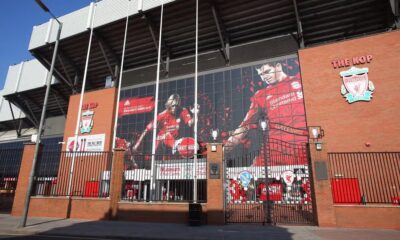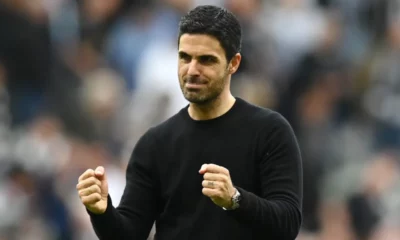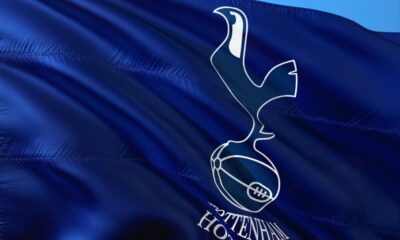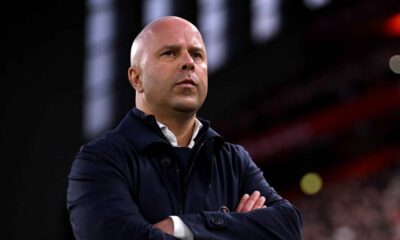Liverpool
Liverpool & Tottenham’s Revolution vs Evolution
A look into the early problems faced by Brendan Rodgers at Liverpool and Andre Villas-Boas at Premier League rivals Tottenham . Guest post by Marvin Williams
Guest post by: Marvin Williams
The Arsenal fans taunted, ‘You’re the Spurs of Merseyside’ as Brendan Rodgers saw his new look Liverpool incur their second defeat of the season. The previous day AVB also searching for his first win again dropped two points at home to Norwich. Now we’re only three games into the season so it’s important not to over exaggerate, make any fickle predictions or erratic decisions, so why then has no one passed on that message to the two managers?
Whilst the taunts where intended as a subject of ridicule rather than constructive criticism, the similarities between the two are unparalleled. Brendan Rodgers clearly went into his new post intent on tearing down every trace of Daglish (surprisingly he hasn’t yet gone into club’s museum and drove a crane into King Kenny’s statues). AVB who appears to have taken little from his experience at Chelsea continues to look tactically inept, making almost identical mistakes from his last reign.
Revolution VS Evolution
It’s inevitable that any new manager would want to lay down his mark at his new club. In fact it’s the essence of appointing a new man at the helm. However those changes when required should occur as gradual ones rather than massive overhauls.
Both clubs have endured mixed fortunes over the last few years. Liverpool crave stability after the turbulence of their last regime, but the size of the club means that there’s an expectation for them to continue challenging with the elites.
Tottenham on the other hand who’ve had that stability, have also been on the fringes for several years and long to consistently challenge. If anything should act as a deterrent to changing things too quickly is AVB’s time at Chelsea and subsequently that of Roberto Di Matteo.
Owners talk about the project ahead, managers talk about patience and fans talk about getting in the top four next year. The formula is to strike a balance between all three, which of course is easier said than done. The perception is that you either have an evolution or revolution with the latter being favoured. When in actual fact the two aren’t separate entities but a process where one (evolution) leads the other (revolution).
Whatever side of the argument you stand, the one thing that remains indisputable is the fact that you can only build from where you currently stand, taking things one step at a time. As simple as it may sound this sometimes gets forgotten due to the pace at which things move in football. The priority of the two should be to progress from last season’s results. When that is put into perspective the task ahead is a smaller one. Both clubs enjoyed relative success last year. Liverpool although enduring the worst league finish for eighteen years also claimed the Carling Cup and where runners up in the FA cup. Tottenham although failing to qualify for the champions league did finish fourth, which I’m sure was Harry’s remit at the start of the season. So as much as they were negatives equally the season provided some positives.
Transfer dealings
The transfer window somewhat epitomized many of the problems at the two clubs. As well as the business they did/didn’t do the way in which it was conducted is of as much significance. Tottenham spent a large share of the summer haggling over the fees of Modric and Adebayor, saw the deals for Moutinho and Loic Remy fail to materialise from strong positions, allegedly made a late enquiry about Berbatov and then made the bewildering signing in Hugo Lloric.
Dempsey’s late arrival appears to have been a case of securing plan B. The American who was Liverpool’s plan A seemingly didn’t even get close to Anfield. And Rodgers left himself exposed by dispensing of the services of Dirk Kuyt (although reluctantly) and Charlie Adams (a player that can pass). Did the two clubs go into the window with a plan and where they then able to implement it? My guess is that they would have been left slightly disappointed with what they accomplished.
The influence of owners
The level of influence fans will permit an owner to have is dependent on the club’s success and the money they’re willing to depart with, from Roman Abramovich to Mike Ashley to same law applies. FSG came in and were on the back foot from day one, merely due to them being American. Their fellow countrymen, Hicks, Gillett and the Glazers had done much to tarnish their reputation, so it was important to disassociate themselves from the others. For that same reason however they acted hastily in making many of their vital early decisions. In an effort to impress they pandered to pressure with their appointment of Kenny Daglish and I personally believe they didn’t apprehend the magnitude of the Carroll signing, due to its immediacy after Torres’ departure.
Whilst John Henry’s open letter would have been welcomed going forward, the club have continued to make mistakes this year. For one, Brendan Rodgers’ statement on Carroll and Downing pointlessly ostracised the two players, and needed someone from higher up to intervene. Likewise AVB’s treatment of Dawson and Huddlestone would have achieved the same thing. Later this month Liverpool plan to air a reality-TV like documentary in which an episode will unveil Kenny Daglish’s sacking (which will be wrong on so many levels)
Daniel Levy has developed a reputation as a no-nonsense chairman who bargains the best deals for Spurs. Unfortunately those negotiations are often about the sale of one his players. Harry’s four year spell signalled some of the most successful in the club’s recent history, so the decision to get rid of him would always be a risk. Levy hasn’t had the best record in appointing managers during his tenure, and whilst I’m again sceptical of AVB’s appointment, we’ll only find the success of it with time.
As I said early on we’re only three games in, and the nature of our sport means that in three games time all could be forgotten. However there are early warning signs that are better addressed sooner rather than later.














